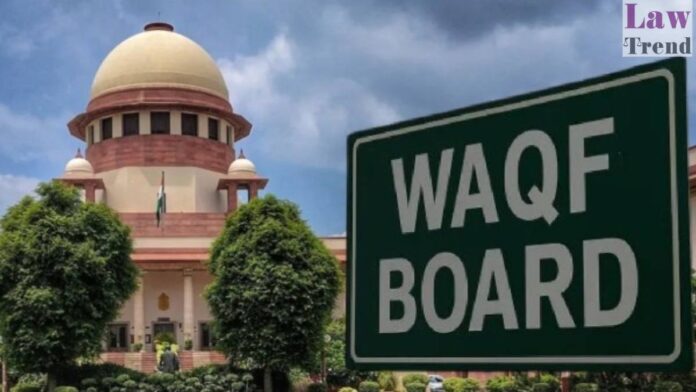The Supreme Court on Tuesday refused to entertain a petition seeking the transfer of a case challenging the constitutional validity of the Waqf Act, 1995, from the Delhi High Court to itself. The apex court made strong observations against what it termed the growing trend of filing petitions merely to attract media attention.
A bench led by Chief Justice of India B.R. Gavai, along with Justices K. Vinod Chandran and N.V. Anjaria, dismissed the transfer plea filed by advocate Ashwini Kumar Upadhyay. The petition sought to move his challenge to certain provisions of the Waqf Act from the Delhi High Court to the Supreme Court.
“This issue is already pending before this court. Why do you want more petitions?” CJI Gavai asked at the outset, referring to an existing batch of 11 petitions already being considered by the top court against similar provisions of the Act. The bench noted that a previous bench led by then CJI Sanjiv Khanna had already established a clear procedural timeline for admitting such challenges and allowed fresh petitioners to intervene in the ongoing matter.
Appearing in person, Upadhyay argued that he was the first to challenge the law and claimed his efforts brought national attention to what he described as the “land grab” involving waqf boards and over 40 lakh acres of land. However, the court was unimpressed.
“You are always the first. What is the hurry to rush to court? Only after seeing the newspapers? Petitions are nowadays being filed only for the newspapers,” the CJI observed sharply.
Rejecting the request, the bench said, “We are not inclined to entertain the prayer.”
Upadhyay’s writ petition before the Delhi High Court challenges the constitutional validity of Sections 4 to 9 and Section 14 of the Waqf Act, 1995, as amended by the Waqf (Amendment) Act, 2025. He contends that these provisions violate Articles 14 (equality before law), 15 (prohibition of discrimination), 21 (right to life and liberty), 25 (freedom of religion), and 27 (freedom from tax for religious purposes) of the Constitution.




